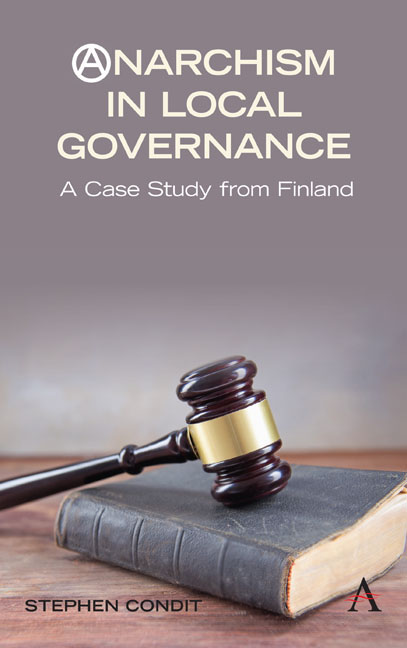Book contents
- Frontmatter
- Dedication
- Contents
- Acknowledgements
- Chapter One Introduction: The Prospects of My Situation
- Chapter Two Evoking Anarchism
- Chapter Three Municipal Possibilities of Anarchist Praxis
- Chapter Four The Impossible Ideals of Libertarian Municipalism
- Chapter Five A Municipal Expedient for Anarchists
- Chapter Six Latent Anarchism in Citizen Associations
- Chapter Seven An Equivocal Vindication
- References
- Index
Chapter Three - Municipal Possibilities of Anarchist Praxis
Published online by Cambridge University Press: 06 September 2019
- Frontmatter
- Dedication
- Contents
- Acknowledgements
- Chapter One Introduction: The Prospects of My Situation
- Chapter Two Evoking Anarchism
- Chapter Three Municipal Possibilities of Anarchist Praxis
- Chapter Four The Impossible Ideals of Libertarian Municipalism
- Chapter Five A Municipal Expedient for Anarchists
- Chapter Six Latent Anarchism in Citizen Associations
- Chapter Seven An Equivocal Vindication
- References
- Index
Summary
My narrative has been more focused on the individual person than I had anticipated and more than I have experienced in local governance. Anarchism tends this way. Self-governance, which I take to be its irreducible essence, must entail the possibility of causal agency which cannot be alienated or obscured in complex procedures, thereby forfeiting responsibility of authorship for one's actions and participation in power. Only individual agency can in certain circumstances approximate this demand. The extension of self-governance to all the domains of governance in which the individual person participates complicates the responsibility of agency and embeds authorship in ever more distant and impersonal procedures and structures. But anarchism insists that the will to self-governance never be abdicated. Actions which the person cannot plausibly comprehend in some palpable sense as her own agency on her own responsibility are usurpations of authorship and a diminution of self-governance. From this follows loss of authority and an increase in domination, coercion and submission.
Nevertheless, social order cannot be distilled to this individuality. Social structures, institutions and policies are collective. However much ultimately their impact on people is individually experienced, neither their causes nor their consequences can be adequately comprehended on that level. A person who seeks the power of authorship only where it is obvious and easy excludes herself from public action and compromises her self-governance, settling for trivialities. A challenge of anarchism is to empower us to transcend our ordinary existence into more inclusive realms of causal agency, without losing self-governance, the pursuit of excellence through art or the strength for solitude, contemplation or personal artistry.
There are many means to this end. In this study, I focus on municipal and associational participation which may be explained by its possible contribution to anarchism. Anarchist praxis may precede intentionality and enrich our self-constitution when we better comprehend our situations and consequences. This sequence indeed is frequently asserted by anarchists, that anarchism permeates society more extensively than is recognised as both an urgent need and a possibility (Ward 1982, 135– 44). Intentional praxis is a goal but without allowing doctrine to distort effective participation, which may depend on practical compliance with ruling institutions.
- Type
- Chapter
- Information
- Anarchism in Local GovernanceA Case Study from Finland, pp. 59 - 130Publisher: Anthem PressPrint publication year: 2019



